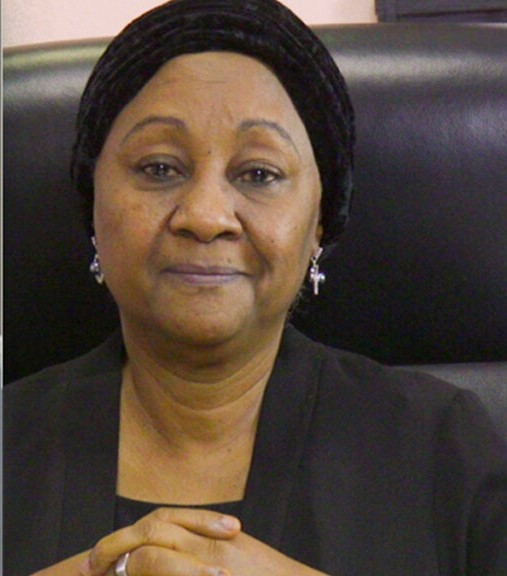- Without proper protection for judges and court personnel, courts cannot function effectively
By Lillian Okenwa
A judge of the Federal High Court, Hon. Justice Binta F. M. Nyako, has expressed concern that penal sanctions appear to emphasize the safeguarding of rights and interest of offenders to the detriment of victims and witnesses of crime.
Nyako in a paper, Victims and Witnesses Protection in Terrorism Cases: The Role of Judicial Officers, delivered at a workshop for Judicial Officers on Money Laundering and Counter – Terrorism at the National Judicial Institute, Abuja, noted that: “A close look at the statutory provisions, through procedural laws, to penal sanctions appears to emphasize the safeguarding of rights and interest of offenders while that of the victim and witness of crime has little or is utterly neglected under the Nigerian criminal justice system.

“The Administration of Criminal Justice Act, 2015 intended to revolutionize our criminal justice system with a view of checkmating the imbalance inherent in the old justice system appeared to pay great attention to the welfare of the offender or the accused person(defendant) and give little regard to the victim of crime. This has placed the victim of crime in disadvantageous position that appears to have been forgotten in our criminal justice system.
“It is a trite law in Nigeria that justice is a three-way traffic; justice for the accused person, justice for the victim of crime and justice for the society. The pertinent question is, to what extent has justice for the victim of crime actually touched the life of the victim to reposition him to his previous state? It is against this background, the underlying principle in the promotion of crime victims’ right is to ensure that they are assisted in recovering from the trauma of the criminal violations suffered as a result of the criminal behaviour of another person, as obtainable in America, Britain, etc. or in line with international best practices.
“The Administration of Criminal Justice Act, 2015 as well as the Terrorism Act, 2022 provide for cost, compensation and restitution to be made to the victim of crime as a way of solving problems created by criminal activities. It is the victim and sometime witnesses that feel humiliated and oppressed. This paper intends to examine the current Terrorism (Prevention) (Amendment)Act,2022 and the Administration of Criminal Justice Act, 2015 in Nigeria, whether the plight of victim and witness of crime are adequately compensated or the restitution orders are satisfactory.”
Her Lordship who was on 14 May 2023 elected by women judges from over 72 countries as President of International Association of Women Judges (IAWJ), at Marrakesh, Morocco further observed that: “Victims of crimes are often neglected and left without any form of compensation even when the offender has been found guilty and sentenced. The ACJA has addressed this ugly trend by broadening the powers of the court to award costs, compensation and damages in deserving cases, especially to victims of crime.”
She then counselled that: “Victims of terrorist crimes must be treated with compassion and respect for their dignity. They are entitled to access to the mechanisms of justice and to prompt redress, as provided for by national legislation for the harm that they have suffered. Judicial and administrative mechanisms should be established and strengthened where necessary to enable victims obtain redress through formal or informal procedures that are expeditious, fair, inexpensive and accessible.”
Justice Nyako said: “It is really sad that even the recent ACJA, 2015 could not make adequate or provide institutional framework needed to ensure that the victim of crime can obtain adequate compensation in line with international standard and best practices. Instances of indecent assault and terrorism offences where the provision of the law does not make room for the victim to be psychologically redressed.
“The courts have the discretion to award compensation or not. This discretion is left to the presiding judicial officer worse still, the recent Administration of Criminal Justice Act, 2015 provides for compensation to victims of crime, but did little or nothing to assist the victim of the terror act. The state assumes a responsibility to protect its citizens and consequently proceeds with prosecuting those responsible for breach of the peace but without compensating the victims who sustain injury as a result of the criminal behaviour of the offenders.
“Where the state fails or neglects its responsibility by ensuring adequate security, then it should not relent to compensate the victims of such crime because they are also parties to the criminal justice system. It is my humble submission that the victim of crime should be assisted by the state where the offender cannot be found or the offender is to serve jail term or is poor.”
On the payment of expenses of witnesses, Her Lordship stated thus: “The ACJA in Sections 251 and 252 provide that, when a person attends court as a state witness or defence witness, he shall be entitled to payment of reasonable expenses by the Registrar. However, state does not pay money either to the defence witnesses or the prosecution’s witnesses citing paucity of funds. The Court need to make rulings compelling states to pay the expenses incurred in line with Victims Trust Fund in Sections 91 and 92 of the Act.” The said section indicates the office of the Attorney-General has established a Victims Trust Fund.
Calling for the protection of judicial officers, the onetime President, National Association of Women Judges (NAWJIN) said: “Without proper protection for judges and court personnel, courts are often unable to function effectively or fairly when they are the object of threats or potential threats by terrorist groups or their supporters. Similarly, the criminal justice process can be paralyzed by the system’s inability to protect all participants against intimidation and retaliation. Part of the core capacity of the criminal justice system to deal with acts of terrorism is capacity to effectively ensure the security of judges, prosecutors, and other court personnel, as well as the capacity of jurors, witnesses, and all others who participate in court proceedings…”
In closing Justice Nyako said: “As Judicial Officers expect some legal backing through constitutional and statutory amendments to enable them protect victims and witnesses of terrorist crimes, the judges must utilize the provisions of the Terrorism Prevention Amendment Act, 2022 and the Administration of Criminal Justice Act, 2015 and apply them mutatis mutandis in the protection of victims and witnesses in the criminal justice system in the country because, to my mind, the biggest role of a Judge is to honour the oath of office and defend the constitution.”
Read the entire paper.
Victims_and_Witnesses_Protection1




